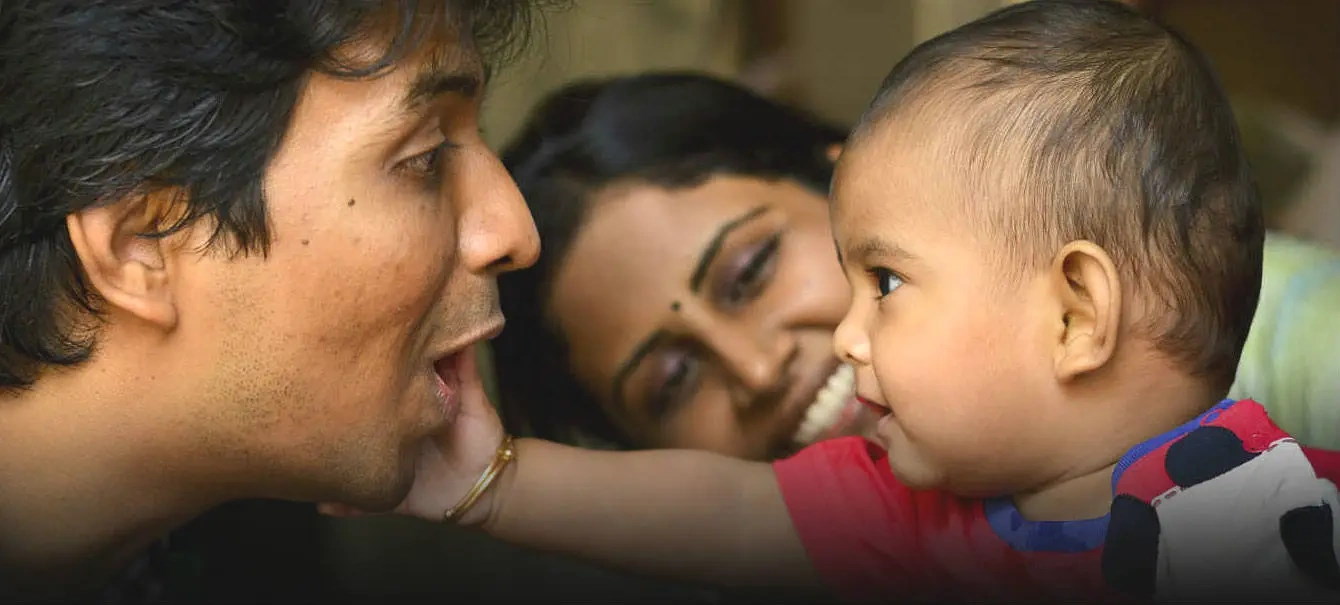
“If we change the beginning of the story,
we change the whole story.”
— The beginning of life
 The 2025 Country profiles for ECD are now available in Arabic, French, English, Russian and Spanish. As was the case in 2021 and 2023, each of the 197 country profiles includes 42 indicators to assess and monitor a country's progress towards ensuring young children are able to thrive. The profiles are developed by UNICEF in collaboration with Countdown to 2030 Women’s, Children’s and Adolescent’s Health.
The 2025 Country profiles for ECD are now available in Arabic, French, English, Russian and Spanish. As was the case in 2021 and 2023, each of the 197 country profiles includes 42 indicators to assess and monitor a country's progress towards ensuring young children are able to thrive. The profiles are developed by UNICEF in collaboration with Countdown to 2030 Women’s, Children’s and Adolescent’s Health.
More.
2025 Regional Profiles for Africa
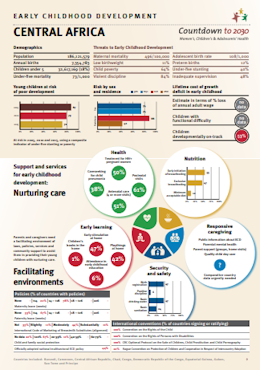
Launched at the 4th International Conference on Public Health in Africa (CPHIA 2025), the Regional Profiles for Africa are a complement to the global set of 197 Country profiles for ECD. The first edition of the Africa package comprises 5 regional profiles: Central Africa, Eastern Africa, Northern Africa, Southern Africa and Western Africa. The countries within each region are listed on the regional profiles.
• Download.
• More.
Supporting Parents and their Caregiving Potential
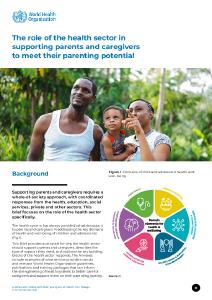 This brochure, by the World Health Organization, outlines what the health sector can do to support parents and caregivers, describes the type of support they need, and outlines the key building blocks of the health sector response. The annexes provide practical examples as well as links to relevant WHO guidance and resources. Available in Arabic, Chinese, English, French, Russian and Spanish. More.
This brochure, by the World Health Organization, outlines what the health sector can do to support parents and caregivers, describes the type of support they need, and outlines the key building blocks of the health sector response. The annexes provide practical examples as well as links to relevant WHO guidance and resources. Available in Arabic, Chinese, English, French, Russian and Spanish. More.
See also: WHO's initiatives to support parents through the health system
Towards a More Sustainable Future: Addressing Young Children and the Changing Climate
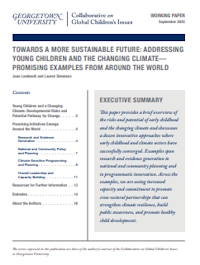 This working paper provides an overview of the risks and potential of early childhood and the changing climate and showcases a dozen innovative approaches where early childhood and climate sectors have successfully converged.
This working paper provides an overview of the risks and potential of early childhood and the changing climate and showcases a dozen innovative approaches where early childhood and climate sectors have successfully converged.
More
Compendium on Respectful Maternal and Newborn Care
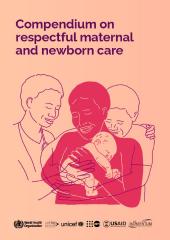 This WHO compendium supports efforts to end mistreatment and achieve respectful maternal and newborn care, marking a decade since the WHO's 2014 statement on the prevention of disrespect and abuse during facility-based childbirth. Despite substantial progress in understanding and measuring respectful care large-scale implementation remains limited. Emerging research has highlighted small-scale interventions, but there is still much to learn about the most effective approaches.
This WHO compendium supports efforts to end mistreatment and achieve respectful maternal and newborn care, marking a decade since the WHO's 2014 statement on the prevention of disrespect and abuse during facility-based childbirth. Despite substantial progress in understanding and measuring respectful care large-scale implementation remains limited. Emerging research has highlighted small-scale interventions, but there is still much to learn about the most effective approaches.
• Access the Compendium
• News release
Parenting in Asia: Innovations, Challenges, and Pathways to Scale-up
Hear experts from China, Malaysia, the Philippines, Thailand & Vietnam share insights on innovations, challenges, and scaling parenting support across the region.
Online
Moving Minds Alliance Showcase
Join the Moving Minds Alliance as they spotlight sustainable and innovative ECD programmes and research projects. The webinar will also feature a presentation of resources and opportunities for collaboration.
Online
The Road to COP 30: Putting Child Rights at the Center of the Climate Change Agenda
This is an opportunity to shift the discourse and position children at the center of climate negotiations. Hear from some of the groups leading these efforts and learn how to help in influence the planning process in your country.
Online
IDPA 2025 Congress
The International Developmental Pediatrics Association Congress will bring together participants from multiple disciplines, including all aspects of service delivery from research to child development and developmental disabilities.
Guatemala
Moving Minds Alliance Strategy 2025-2030: 'Reimagining early years crisis response'
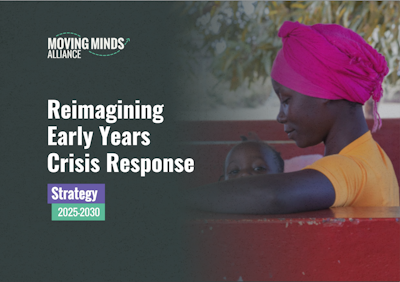 The Moving Minds Alliance (MMA) has set a powerful vision to change that: advocating for better outcomes, equity, and rights for young children, families and communities affected by crises. This five-year strategy sets three strategic priorities:
The Moving Minds Alliance (MMA) has set a powerful vision to change that: advocating for better outcomes, equity, and rights for young children, families and communities affected by crises. This five-year strategy sets three strategic priorities:
Nepal Introduces WHO/UNICEF Care for Child Development Course
 "The Government of Nepal is deeply committed to investing in the early years of life, recognizing that nurturing care lays the foundation for a child’s lifelong health, learning and well-being," says Dr Bibek Kumar Lal, Director of Nepal's Family Welfare Division at the Department of Health Services. The Ministry, with support from WHO Country Office for Nepal, has introduced the WHO/UNICEF Care for Child Development course for the first time in the WHO South-East Asia Region.
"The Government of Nepal is deeply committed to investing in the early years of life, recognizing that nurturing care lays the foundation for a child’s lifelong health, learning and well-being," says Dr Bibek Kumar Lal, Director of Nepal's Family Welfare Division at the Department of Health Services. The Ministry, with support from WHO Country Office for Nepal, has introduced the WHO/UNICEF Care for Child Development course for the first time in the WHO South-East Asia Region.More.
PATH ECD Knowledge Hub
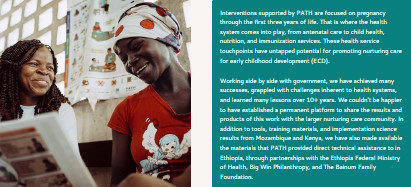
This knowledge hub compiles national documents, assessments, job aids, training materials, and quality improvement tools, developed by PATH in collaboration with government and partners across Eastern and Southern Africa, to support the promotion of nurturing care for early childhood development through existing health and nutrition services. More.




